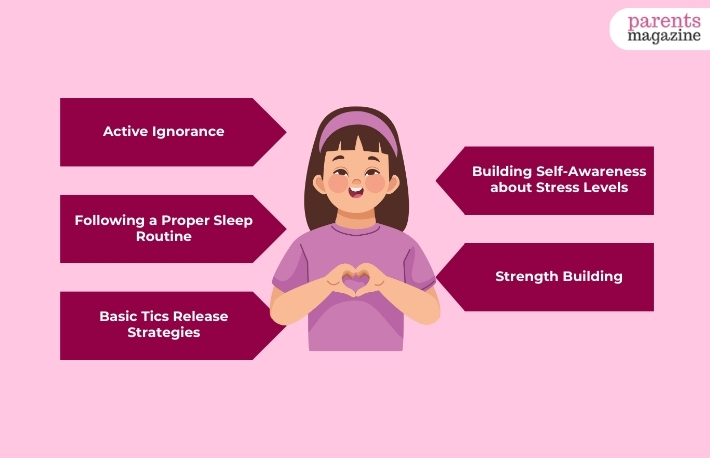
Why Has My Child Suddenly Developed a Tic?
Why has my child suddenly developed a tic?
Honestly, no simple answer explains why someone has suddenly developed tics. However, people develop tics due to complex neurological or genetic reasons.
But when it’s about adults, infections can be one reason that might have caused tics. Many infections can trigger an abrupt onset of tics in children. These can usually occur from any abnormal immune responses when antibodies start attacking the healthy cells in the brain.
The result often leads to normal neural functions, causing tics. Here’s a blog post to help you find out what’s affecting your child.
Key Takeaways
- Tics are sounds and movements people do involuntarily.
- Ticks aren’t harmful. But children with tics often find it difficult to concentrate. They deal with fidgeting, impulse or anxiety, concentration, etc.
- Home videos help with the diagnosis.
- Active ignorance of the symptoms of tics makes it easier for people suffering from it to cope.
What Are Tics?

Children often make involuntary sounds or noises called tics. These are repetitive and sudden movements and activities that usually affect school children at an early primary school age.
It is said that tics appear in one in eight school students. In some children, bouts of tics appear and stay for a year (in at least one among 100 children).
Tics can be troublesome for children aged between 10 to 12. But they get better as they age and approach their teenage years or early adulthood.
Also, 50% of people with them outgrow tics during adulthood or experience fewer instances than during childhood.
How Do You Identify If Somebody Has Developed Tic?

Mortar tics are sudden body movements that happen without purpose. It can affect any part of the body and usually affects the affected people’s head, eyes, shoulders, and face. Usually, any movement in your body without any purpose can be seen as a tic.
There is another type of tic called the phonic tic. It happens when the affected person makes a sound, which includes sounds of clearing throat, sniffing, or squeaking to certain words or phrases.
Another thing to notice is that there is no single pattern in how tics come about. It can come and go. Sometimes, one tic leaves, and another starts. However, in most cases, tics happen when someone is under extreme stress, tiredness, nervousness, etc. Sometimes, tics also happen or intensify during the discussion. So, talking about tics can increase their occurrences.
Tics are involuntary. However, some people develop the skill to suppress their tics over time. Sometimes, it’s hard to do for a long time. However, trying to suppress tics can only result in a person developing more tics later.
Tics tend to get less frequent When a person is focused on something.
Why Has My Child Suddenly Developed a Tic?

So, if you are wondering why your child suddenly started developing a tic, then there is no straight answer. Experts have yet to discover a single reason for the origin of tics. However, some genetic and neurobiological factors are at play when someone has tics.
The reasons can be any of the ones discussed above. Does somebody in your family have tics? Or is your child facing any neurological disorder? It’s important to find answers to these questions for your clarity.
It’s best to get your child diagnosed if they gradually develop a tic. You can take your child to a pediatrician or a neurologist who can help you diagnose tics.
How to Diagnose Tics?

Your pediatrician or neurologist will not take your child through any test. Usually, doctors or neurologists ask parents to imitate the movements or inconsistent movements they make.
They may also ask your child to express the movement or the habits and behaviors they are experiencing in their body. You can also resort to home videos to help your doctors diagnose the signs of tics.
How Do You Help Your Child Manage Tic?

Tic can be hard to manage in a difficult environment. People around your child must be supportive and positive. Usually, kids with tics face a challenging environment around them, with friends and family constantly making a fuss about it.
Also, when someone asks a young person to stop behaving that way or punishing them, it can make the tics worse for them. It’s nothing intentional, and your child doesn’t have control over tics. Such children can be helped by building awareness about tics.
Parents can talk to the school principal or committee and discuss this symptom privately. The school can take the awareness forward and discuss the ways to respond to them to other children.
However, here are some general measures parents can take to safeguard their children if they have tics.
Active Ignorance
Don’t react to the tics when they occur. Paying attention to tics can worsen the condition as the child starts becoming conscious about tics. Active ignorance is the best way to help children cope with tics. Parents, friends, and family should actively ignore the instances of tics.
Following a Proper Sleep Routine
Tics get worse when a young child or teenager lacks proper sleep. It helps to ensure that the child has enough sleep. An appropriate routine of sleep prevents kids from becoming fatigued, which decreases occurrences.
Basic Tics Release Strategies
Parents can help kids come up with basic strategies to let out tics. They can work on a release strategy that they are comfortable with. The process should identify a place where they can feel comfortable releasing their thoughts.
It’s best to take a few short breaks. When they are under a stressful activity. In fact, switching to different and easier activities also helps.
Building Self-Awareness about Stress Levels
Tics can increase immensely when your child is extremely stressed. So, it helps if your child can understand their stress level. It can give them cues about using mindful techniques to reduce tics. It can be breathing exercises or things like listening to songs. Sometimes, coloring books can also help deal with stress.
Strength Building
Parents helping their child build their strength can boost their confidence. They can use their confidence to fight tics.
Does My Child Need Treatment for Tics?

Tics can come at different intensities. People with tics can go on about their days without any problem. tics can be dealt with when they don’t interfere with day-to-day activities. But if it becomes disruptive or interferes with regular daily tasks, children may need psychological aid and medicines.
Well-motivated young people can use psychological treatment to deal with their tics. No, tics aren’t voluntary. However, psychological help works for these individuals.
Psychologists can help young people recognize the patterns leading to tics. Once they know the urge that’s leading to tics, they can change it themselves.
Sometimes, habit reversal or treatments like Comprehensive Behavioral Therapy for Tics can help. Even relaxation habits help children deal with tics.
However, these treatments aren’t always suitable for children since they require motivation and patience.
But medications help reduce the frequency of tics but don’t cure tics completely. Also, everyone with tics doesn’t benefit from medication; also, there are some side effects of a few medicines.
Some children often have difficulty concentrating, impulsiveness, fidgeting, or anxiety. Discussing all these symptoms with the pediatrician when your child has tics. So, if you are wondering whether your child needs treatment for tics, it’s best to consult a pediatrician.
Only proper diagnosis of the symptoms can tell if your child needs treatment for tics. So, if they show any behavioral signs of tics, it’s best to consult a pediatrician. After all, the well-being of your child is of utmost priority.
Final Words
Tic is difficult to deal with (for both children and adults). But they aren’t harmful and can often be dealt with without medical treatment. However, there’s no clear answer to what causes tics. Some changes in the part of a child’s brain that controls physical activities cause tics.
In many cases, there are genetic reasons behind tics. It often runs in families. If your child develops a tic, it’s better to consult with a neurosurgeon or a healthcare professional in this domain. However, as discussed before, there’s no specific reason behind a child developing a tic.
Did you find your answer? Share your feedback through the comment section and we will get back to you as soon as we can.
Disclaimer: This article serves as a primary resource to help you become more aware of tics. It doesn’t replace the need to visit your neurologist or a professional healthcare expert.
Suggested…
Already have an account?
Sign In
Create your account
User added successfully. Log in









